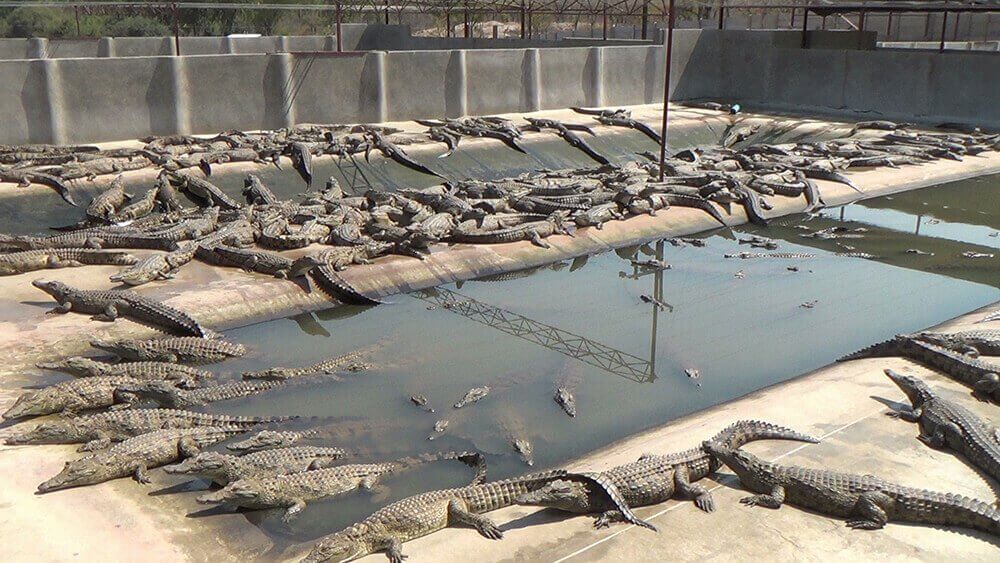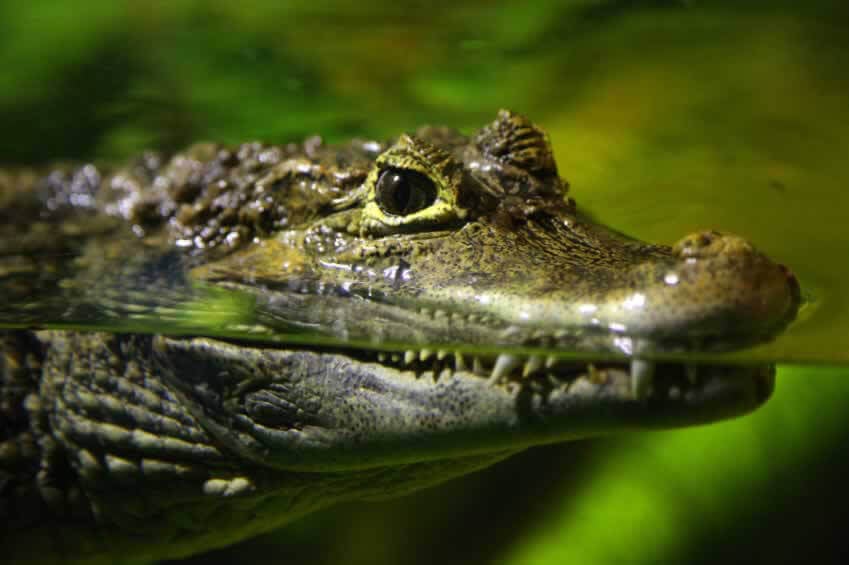Raising and Killing Animals for Exotic Skins Could Spark the Next Pandemic
Is killing animals for fashion worth another devastating pandemic?
Raising and killing exotic animals for “luxury” fashion items can increase the risk of outbreaks of dangerous illnesses such as COVID-19, and PETA is calling for a complete shutdown of exotic-animal farms.

Many alligators and crocodiles who are raised on farms for their skin are kept crowded together in highly unhygienic conditions, one on top of the other in pens of putrid water. This creates a potentially serious major breeding ground for many zoonotic pathogens (causative agents of diseases that can spread from other animals to humans), including salmonella, vibrio, Aeromonas spp., Pseudomonas spp., E. coli, trichinella, West Nile virus, and others—all of which crocodilians have been found to carry and potentially pass on to humans.
A PETA undercover investigation of a Texas alligator farm showed that alligators were kept in fetid water and dark sheds without sunlight, fresh air, clean water, or basic medical care. Workers had to feel around in foul water with their hands and feet to try to catch the struggling animals. With little or no safety equipment given to them, they were often bitten and injured.
Workers crudely hacked into the necks of some alligators and tried to scramble their brains with metal rods. Some animals were still conscious, flailing and kicking, even minutes after being shot, cut open, or stabbed.
Another PETA exposé of a farm in Vietnam similarly revealed crocodiles packed together in filthy conditions. The animals imprisoned closely together take out their aggression on one another, and injuries commonly lead to infection and disease.
The images of workers in blood-soaked slaughterhouses are reminiscent of the filthy, cramped wet markets where scientists believe the novel coronavirus originated. In these markets, animals such as snakes and lizards, also used for their skin in fashion, can be bought for consumption.
Thousands of these time bombs are ticking right here in the U.S.
According to a NOLA.com article, “Louisiana is the nation’s leading producer of alligator skins. In 2017, the state’s wild alligators accounted for 15,000 skins and farmers produced more than 380,000 skins.” There are about 900,000 farmed alligators in Louisiana.
PETA sent Louisiana Gov. John Bel Edwards a letter calling on him to close the state’s alligator farms immediately and retrain workers to produce vegan fashion materials like mushrooms and soy that won’t cause the next pandemic. We also offered to help offset the cost of a retraining program.
Louisiana ranks 25th by state population but ninth in confirmed COVID-19 cases. Since the next potential crisis could start there, we want to help prevent more deaths and disease.
Imagine the terror that animals used for their skin must experience when they’re held down and cut open.
Sure, we humans may look different from alligators, crocodiles, snakes, and other animals killed for their skin, but when it comes to fear and the desire to be free from pain, we are all the same.
Crocodiles like to have fun by blowing bubbles. Snakes are intelligent, quick learners, and some cobras even “play possum” until potential threats have passed. Just like us, animals have emotions and feelings. They want to enjoy life, and they feel fear when their lives are threatened.

The good news is that even before the current crisis, exotic skins were falling out of favor. Many major designers and retailers—including Chanel, Nine West, Victoria Beckham, Nike, and others—have banned exotic skins from their designs, and California banned them from being sold altogether.
Don’t Let the Next Global Crisis Come From Your Closet
As long as humans continue to raise and kill animals for their skin, these filthy farms will continue to be breeding grounds for lethal diseases. Commit to wearing exclusively vegan materials today, and save countless animals from being slaughtered by pushing brands to ban exotic skins.

